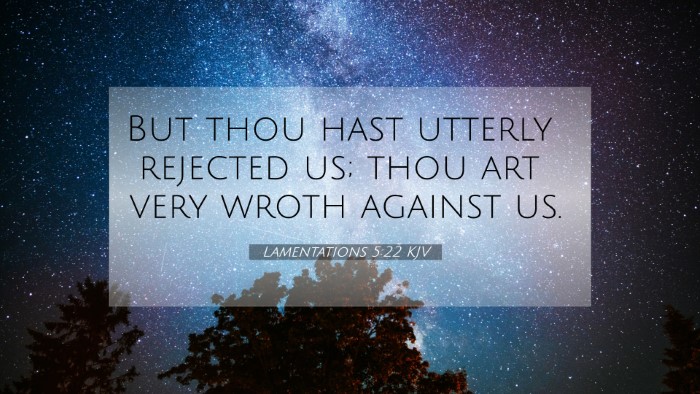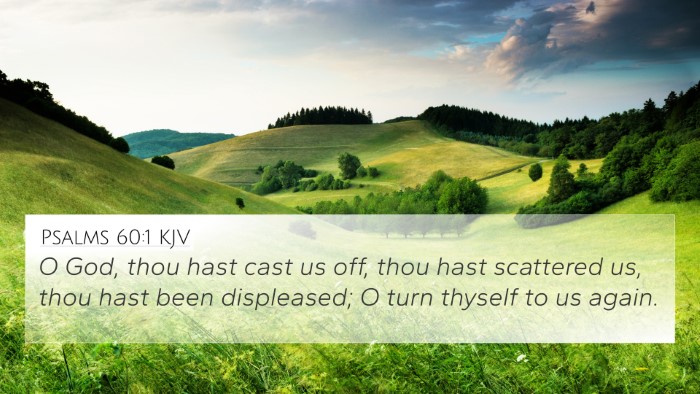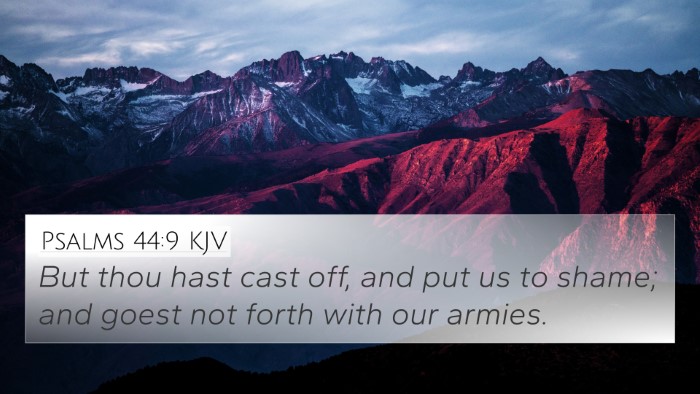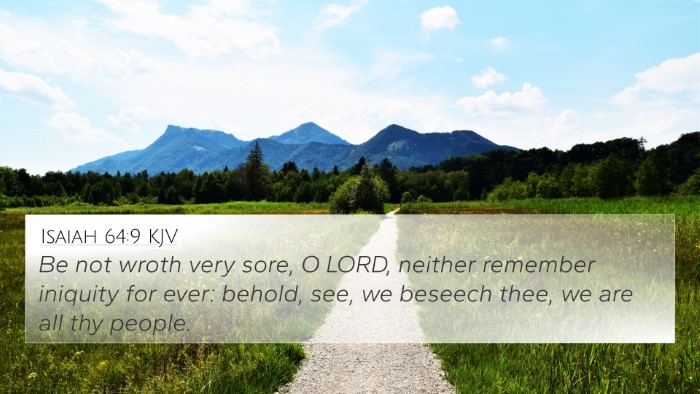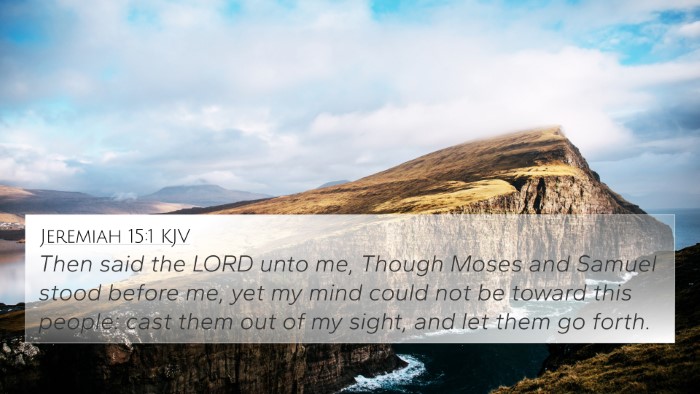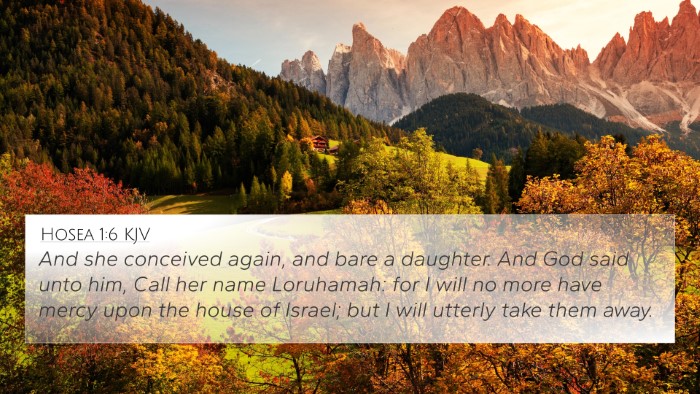Lamentations 5:22 - Overview
Lamentations 5:22 states: "But thou hast utterly rejected us; thou art very wroth against us." This verse captures the deep sense of despair and the feeling of being forsaken by God after the calamities that befell Jerusalem. In this reflection, we will uncover layers of meaning and insights related to this verse, utilizing perspectives from notable public domain commentaries.
Commentary Insights
-
Matthew Henry:
Henry elaborates on the sorrowful condition of Israel after their downfall. He notes that the people had experienced God's displeasure due to their transgressions. The feeling of utter rejection reflects the heightened emotional turmoil as they realize that their sins have led to this heavy burden. Henry emphasizes the importance of acknowledging one’s guilt and God's righteousness in judging sin, suggesting a need for repentance.
-
Albert Barnes:
Barnes interprets the verse as a lament of the people expressing abandonment by God. He provides a perspective on the severity of God's wrath as a reaction to Israel's unfaithfulness. Barnes encourages readers to consider the historical context of the Babylonian exile, linking this to God's covenant relationship with Israel, which was fraught with breaches of faith that warranted such divine displeasure.
-
Adam Clarke:
Clarke discusses this verse in relation to the themes of grief and divine retribution. His commentary highlights that the Israelites felt as if they had been cast aside by their Creator. He stresses that God’s anger is not aimed at the people lightly; it results from a long-standing history of disobedience. Clarke's analysis urges believers to recognize the consequences of sin and the urgent need for restoration through sincere repentance.
Thematic Connections to the Bible
This verse significantly relates to several key biblical themes:
-
Sin and Judgment: The rejection highlighted in Lamentations 5:22 is associated with the theme of sin leading to God's judgment, seen in passages like Isaiah 59:2 and Ezekiel 18:30.
-
Repentance: The call for genuine repentance echoes throughout scripture, connecting this verse to 2 Chronicles 7:14 and Joel 2:12-13.
-
God's Faithfulness: Even in despair, God’s ultimate faithfulness emerges in verses such as 2 Timothy 2:13 and Romans 8:38-39.
-
Comfort in Suffering: The subsequent verses in Lamentations bring hope and comfort, paralleling 2 Corinthians 1:3-4 which speaks of God's comfort in all our afflictions.
-
Divine Wrath: God's anger against sin is a recurring theme, as found in Romans 1:18 and Hebrews 10:31.
-
Covenant Relationship: The context of covenant breaks and blessings can be compared with Deuteronomy 28:15 and Jeremiah 31:32.
-
The Exile Experience: The reality of exile in Lamentations links to prophecies in Jeremiah 29:10 and Ezekiel 36:24 concerning return and restoration.
Cross-References and Connections
The verse serves as a prompt to explore cross-references within the text, highlighting the profound connections between scripture. This study can enhance understanding through the following links:
- Lamentations 3:31-32 - God's mercy after times of rejection.
- Psalm 51:17 - A broken spirit as an acceptable offering to God.
- Micah 7:18-19 - God's readiness to forgive after collective failure.
- Isaiah 54:7-8 - God's brief withdrawal contrasted with everlasting kindness.
- Hosea 14:4 - Healing and love expressed to those who return to Him.
- 1 Peter 5:10 - Assurance of restoration after suffering.
- Revelation 21:4 - The promise of wiping away every tear in the final restoration.
Conclusion
Lamentations 5:22 encapsulates the essence of Israel's sorrow and the weight of sin that led to feelings of divine abandonment. The insights drawn from Matthew Henry, Albert Barnes, and Adam Clarke provide a multifaceted view of this verse. Recognizing biblical cross-references expands its thematic connections, illustrating how understanding scripture in context reveals the depth of God's character—one that encompasses judgment, mercy, and ultimate restoration.


